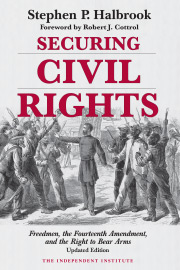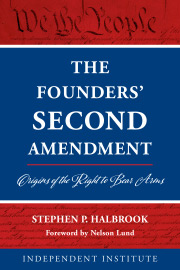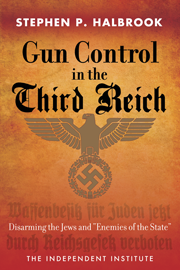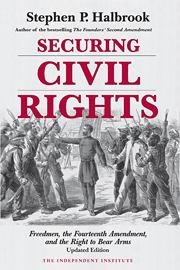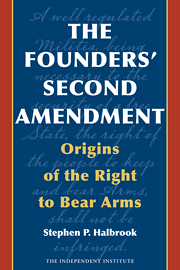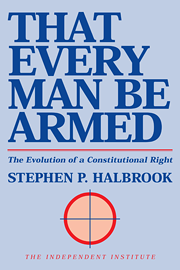The U.S. Supreme Court will soon consider whether the District of Columbia’s bans on possession of handguns, even in the home, and on having long guns functional for self-defense, violate the Constitution.
As the Court sees it in D.C. v. Heller, the issue is whether those bans “violate the Second Amendment rights of individuals who are not affiliated with any state-regulated militia, but who wish to keep handguns and other firearms for private use in their homes.”
The federal appeals court for D.C. held that it did.
After ignoring the Amendment since its ambiguous U.S. v. Miller decision in 1939, the Court will decide whether the phrase “the right of the people” in the Second Amendment refers to the same “people” as in the First and Fourth Amendments, or only to government-selected militiamen.
It will also consider whether a “right” in the Bill of Rights refers to a real liberty or is only rhetoric. Is the right to keep and bear arms on a par with the rights peaceably to assemble or against unreasonable search and seizure? Or is it void where prohibited by law?
For America’s Founders, the answer was obvious.
In 1768, when Redcoats landed to occupy the town, the Boston Gazette warned of British plans “more grievous” than anything before: “the Inhabitants of this Province are to be disarmed” and patriots would be “seized and sent to Great-Britain.”
Through the periods of the Boston Massacre and the Tea Party the screws were tightened, until finally British attempts to seize colonists’ arms at Lexington and Concord in 1775 led to the shot heard ’round the world.
After independence was won, delegates from the states in 1787 framed our Constitution. Anti-federalists protested that it included no declaration of rights and would allow deprivation of free speech and keeping arms.
James Madison responded in The Federalist that a declaration was unnecessary, in part because of “the advantage of being armed, which the Americans possess over the people of almost every other nation,” in contrast with the European monarchies, where “the governments are afraid to trust the people with arms.”
A great compromise was reached: the Constitution would be ratified and then a bill of rights would be debated.
The Second Amendment reads: “A well regulated Militia, being necessary to the security of a free State, the right of the people to keep and bear Arms, shall not be infringed.” For almost two centuries, the understanding was that law-abiding individuals had a right to possess rifles, pistols, and shotguns. This would promote a militia of all able-bodied citizens, which, unlike a standing army, was seen as securing a free country.
In 1976, the District of Columbia banned pistols. It also required registered rifles and shotguns to be rendered non-functional when kept at home (but not at a business). Residents were rendered into second-class citizens - they had no Second Amendment rights and were not trusted to defend themselves in their own homes.
One can imagine what the Bostonians who surrendered all of their firearms to the Crown in 1775 would have thought of such an argument. Hopefully the justices will be mindful of the Founders’ intent and will recognize that the Second Amendment is every bit a part of the Bill of Rights as is the First.



